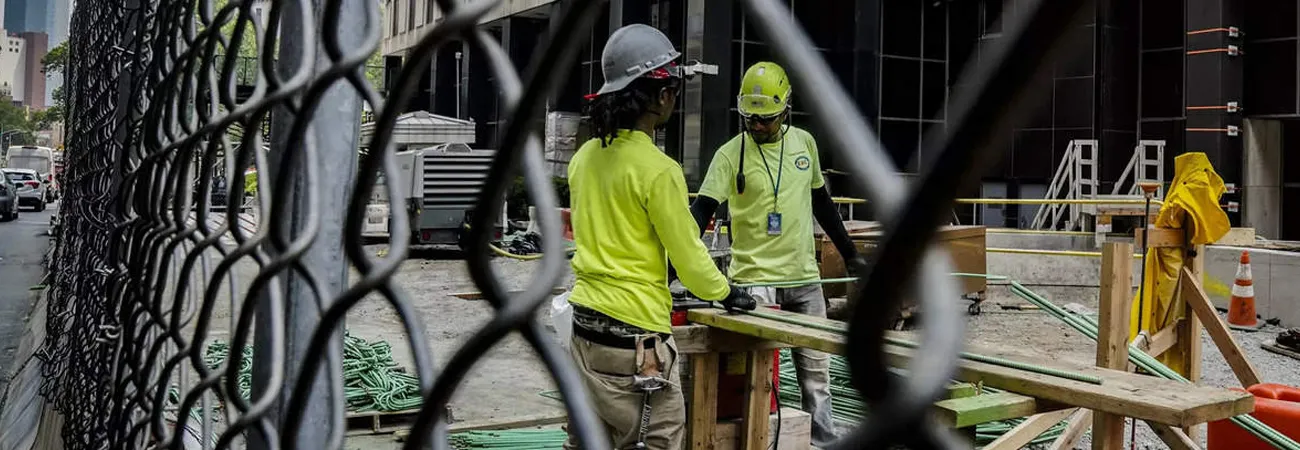i NEWS INTERNATIONAL
Hiring in the United States slowed in June, the Labor Department said Friday, providing a much-needed signal that the American economy is cooling ahead of another interest rate decision later this month. The figures came in below analysts' expectations, providing some respite for the US Federal Reserve as it mulls a return to interest rate hikes later this month to tackle inflation still well above its long-term target of two percent. The world's biggest economy added 209,000 jobs last month, down from a revised figure of 306,000 in May, the Labor Department said. Meanwhile, the unemployment rate edged down to 3.6 percent, remaining close to historic lows, underscoring the enduring strength of the labor market.
The hiring figure came in below the median expectation of 240,000 new jobs in a survey of economists conducted by MarketWatch, while the unemployment rate was in line with predictions. All three major US stock indexes on Wall Street finished the day in the red amid growing expectations of additional interest rate hikes this year "It's a step in the right direction, but we're not near the level that we would need to see to be convinced that the labor market is significantly cooling down," Oxford Economics' lead US economist Oren Klachkin told media. Even with job growth easing, average hourly earnings ticked up by 0.4 percent month-over-month, rising by 4.4 percent on an annual basis.
"The labor market is still very strong, wages are still rising at a very strong pace, unemployment is still very low, and nonfarm payrolls rose at a pace that is way above what the Fed wants," Klachkin said. - 'Bidenomics in action' - US President Joe Biden hailed Friday's jobs report as evidence of "Bidenomics in action." "Our economy added more than 200,000 jobs last month -- for a total of 13.2 million jobs since I took office," he said in a White House statement. "That's more jobs added in two and a half years than any president has ever created in a four-year term," he added. June's new jobs came mainly from increases in employment in government, health care, social assistance and construction, the Labor Department said.
"The economy has proven remarkably resilient, with smaller businesses absorbing layoffs at larger firms," KPMG chief economist Diane Swonk wrote in a note to clients. - July hike 'pretty certain' - Minutes published earlier this week of the Fed's last meeting showed that several members on its rate-setting committee supported another hike in June to tackle high inflation. Ultimately, the Federal Open Market Committee (FOMC) voted to pause the Fed's campaign of 10 consecutive rate increases, indicating that two additional increases would likely be needed before the end of the year to bring inflation back down.
Speaking shortly after the jobs report was released on Friday morning, Chicago Fed president Austan Goolsbee suggested the US central bank had more work to do to tame inflation. "Overall the job market is outstanding, and is getting back to a well-balanced, sustainable level," he told CNBC. "The consensus of almost all the FOMC in the statement of projections is that, over this year, we will have one or two more hikes. I haven't seen anything that says that's wrong," he said. Friday's labor data underscores the likelihood the Fed will return to its campaign of interest rate hikes later this month, according to Oxford Economics' Klachkin.
"Given where the data stand right now I think that a hike this month is pretty certain, and I would say that there's even risks of more hikes in the second half," he said. "The Fed is expected to raise rates at least another half percent before it pauses," KPMG's Swonk said, adding that a hike in July was "all but a done deal" at this point. Futures traders now assign a probability of more than 90 percent that the Fed will raise its base rate by a quarter percentage point at its next meeting on July 25-26, according to data from CME Group.
Credit : Independent News Pakistan-INP









